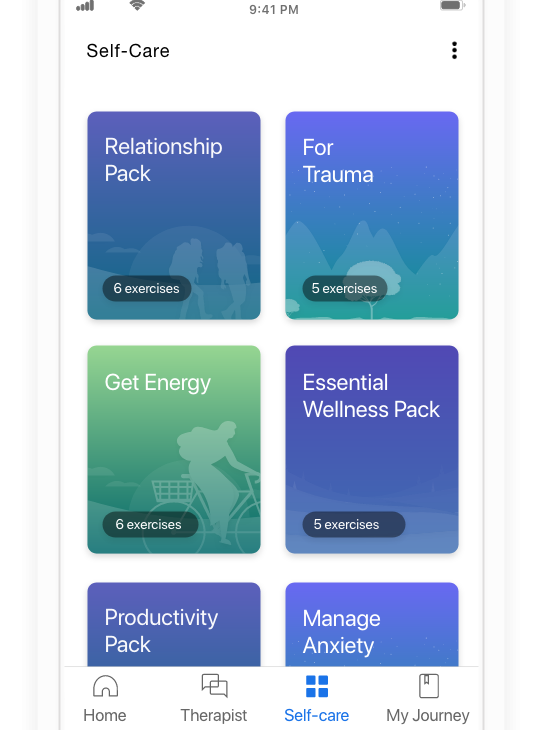Depression in teens: the signs, causes and how to help
Emma Selby, Clinical Lead for Wysa, an AI-enabled mental health app suitable for adults and children aged over 13, says:
“The ‘troubled teen’ is a familiar phrase in today’s world. These years represent a bridge between childhood and adolescence, and many young individuals struggle with depression at this crucial stage of their life.
“Depression in teens alters the thoughts and emotions of young adults causing many physical and psychological problems. This period of change marks the onset of many changes in appearance and understanding, which leads to a shift in the perception of individual identity.
“Prevalent issues such as deepening voice, the onset of facial hair, the realization of sexuality, peer pressure and academic workload can also create challenging situations for teens. Although these changes sound typical to adults who have been through it and come out the other side, they can feel like too much to handle for the teens going through them.”

Identifying depression in teens
“Signs of depression in teens include:
- A marked change in behaviour, for example
- Oversleeping
- Exhibit extreme change in eating habits
- The tendency to indulge in irresponsible behaviour is higher such as breaking the law or experimenting with alcohol and substances
- Acting out and partaking in rebellious outbursts
- Experience periods of sadness and hopelessness
- Loss of desire in socialising and interacting with friends and family
- A drop in grades or lack of interest in school and extracurricular activities
“While these changes may not be immediately noticeable, with time and awareness you can understand if a teenager is experiencing depression. Support and counselling can make a huge positive difference for a teen experiencing depression, preventing issues and feelings of hopelessness from escalating.”

How to Help
- Communication
“By making the time to speak to children and teens daily and in-depth, parents and other loved ones can better identify periods of low mood and help find ways to address this. It’s important that conversation is open and caring without any stigma or guilt.
“Depressed teens may try and isolate themselves – yet the sense of isolation can amplify feelings of sadness and dissatisfaction, so caregivers must guarantee that the teenager doesn’t internalise this frustration and anger but deal with it constructively, to get to the root of the problem”.

- Prioritising physical health
“The link between physical health and mental health is well-known. While teenagers (and adults) experiencing depression may lose interest in eating healthily, getting exercise or washing regularly as a result of their low mood, taking the time to do these activities can improve their mood enormously and give back a sense of control.
“Encourage your teen to continue taking part in hobbies, even if they only do so for short periods at first, as this can not only improve the individual’s physical state but also reduces social isolation and increases feelings of well-being.”
- Self-help tools and mental health apps

“Self-help tools and mental health apps can prove to be a good starting point for children to take up meditation, short breathing exercises and have an anonymous outlet to talk about their feelings when they are finding it hard to open up to parents or caregivers.
“Wysa has a proven library of over 150 plus free self-help tools to help you and your teenager deal and cope with depression. there are different meditations, breathing exercises, cognitive behavioural therapy, reframing thought tools, and much more.”
- Counselling and therapy
“Counselling and therapy could also be very useful in providing teens with a safe space to express their emotions. Trusted therapists and advisors can be instrumental in helping adolescents structure their thoughts and process their feelings in a non-judgemental environment.
“Moreover, they are most likely in the position of providing guidance and lending context to teenage problems in a way that normalizes their feelings and makes them feel less alone.
“Wysa also provides online chat sessions with professional therapists who are trained in helping teenagers deal with depressions and anxiety, and are trusted by over a million users across 60 different countries.”
About Wysa

Wysa is a global leader in AI-driven mental health support. Wysa helps in dealing with stress, depression, and anxiety with the help of an ‘emotionally intelligent’ bot, which uses evidence-based cognitive-behavioral techniques (CBT), meditation, breathing and mindfulness exercises, as well as micro-actions to help you build mental resilience skills and feel better.
It is rated by ORCHA as the top mental health app from a clinical safety and usability perspective. Google has featured Wysa twice as its top mental health app on Google Play for World Mental Health Day 2018 and 19. Anonymous, empathetic and available 24×7, Wysa has served 1.3 million people in 30+ countries having had 90+ million conversations so far.
Wysa FAQ – https://www.wysa.io/faq
